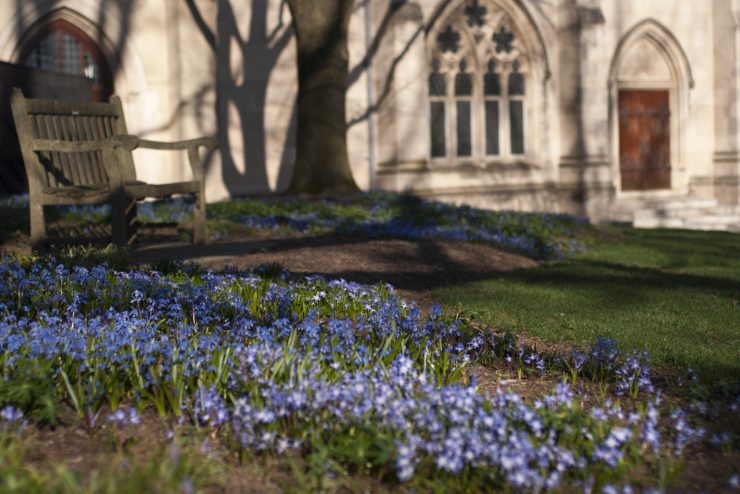God, be merciful to me

Luke 18: 9-14
Jesus told this parable to some who trusted in themselves that they were righteous and regarded others with contempt: “Two men went up to the temple to pray, one a Pharisee and the other a tax collector. The Pharisee, standing by himself, was praying thus, ‘God, I thank you that I am not like other people: thieves, rogues, adulterers, or even like this tax collector. I fast twice a week; I give a tenth of all my income.’ But the tax collector, standing far off, would not even look up to heaven, but was beating his breast and saying, ‘God, be merciful to me, a sinner!’ I tell you, this man went down to his home justified rather than the other; for all who exalt themselves will be humbled, but all who humble themselves will be exalted.”
The parable of the tax collector and the Pharisee offers a lesson that is relatively easy to grasp as a concept but so very difficult to live out consistently. The story challenges me every time I hear it. As he so often does, Jesus offers in this parable a teaching that reverses all expectations. The pious Pharisee who observes the outward practices of the faith—fasting, tithing, praying—is contrasted with the tax collector, the figure reviled for his involvement in the exploitative practices of his profession. Yet, the justified one is not the outwardly pious Pharisee but the inwardly contrite and humble tax collector.
The prayers of both the tax collector and the Pharisee offer us wisdom to attend to in our own life of prayer. To take the negative example first, we see that the Pharisee’s concern is for himself: ‘I thank you that I am not like other people.’ His words are less a genuine prayer than a heaping up of self-congratulatory comments that put others down. The Pharisee may be pious in his outward observance of ritual practices, but his heart remains far from God.
The tax collector, on the other hand, makes this simple, sincere, and deeply faithful request: ‘God, be merciful to me, a sinner!’ This prayer is one we might consider adopting as our own. In it, the tax collector recognizes two fundamental truths—his sinfulness and God’s abundant mercy. To acknowledge our sinfulness is to acknowledge that we are human. To deny it is to deceive ourselves (1 John 1:8). Yet, what God demands is not punishment but honesty and conversion of heart—in other words, returning to God whose mercy is everlasting. That is the purpose of our outward acts of piety. They will serve us no good if they do not lead us back to the heart God. If, like the Pharisee, we find ourselves feeling especially proud of our spiritual superiority by virtue of our rigorous piety and commitment, we will know we have severely gone off track. If, on the other hand, our spiritual practices bring us deeper into the knowledge of God’s boundless mercy and our constant dependence on that gracious provision, then we will have arrived at an altogether different place—justified, exalted in our humility.
prayer
O God, you know us to be set in the midst of so many and great dangers, that by reason of the frailty of our nature we cannot always stand upright: Grant us such strength and protection as may support us in all dangers, and carry us through all temptations; through Jesus Christ our Lord, who lives and reigns with you and the Holy Spirit, one God, for ever and ever. Amen.
—Lesser Feasts and Fasts, 2006, p. 49